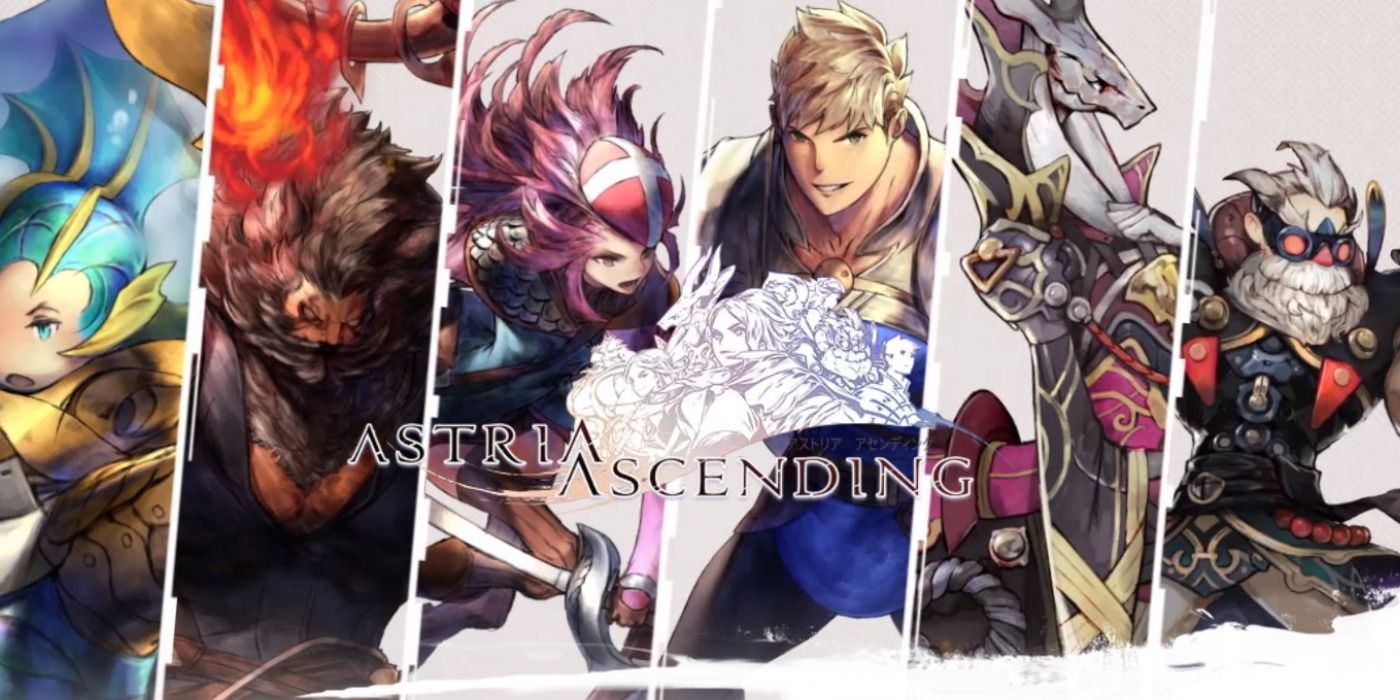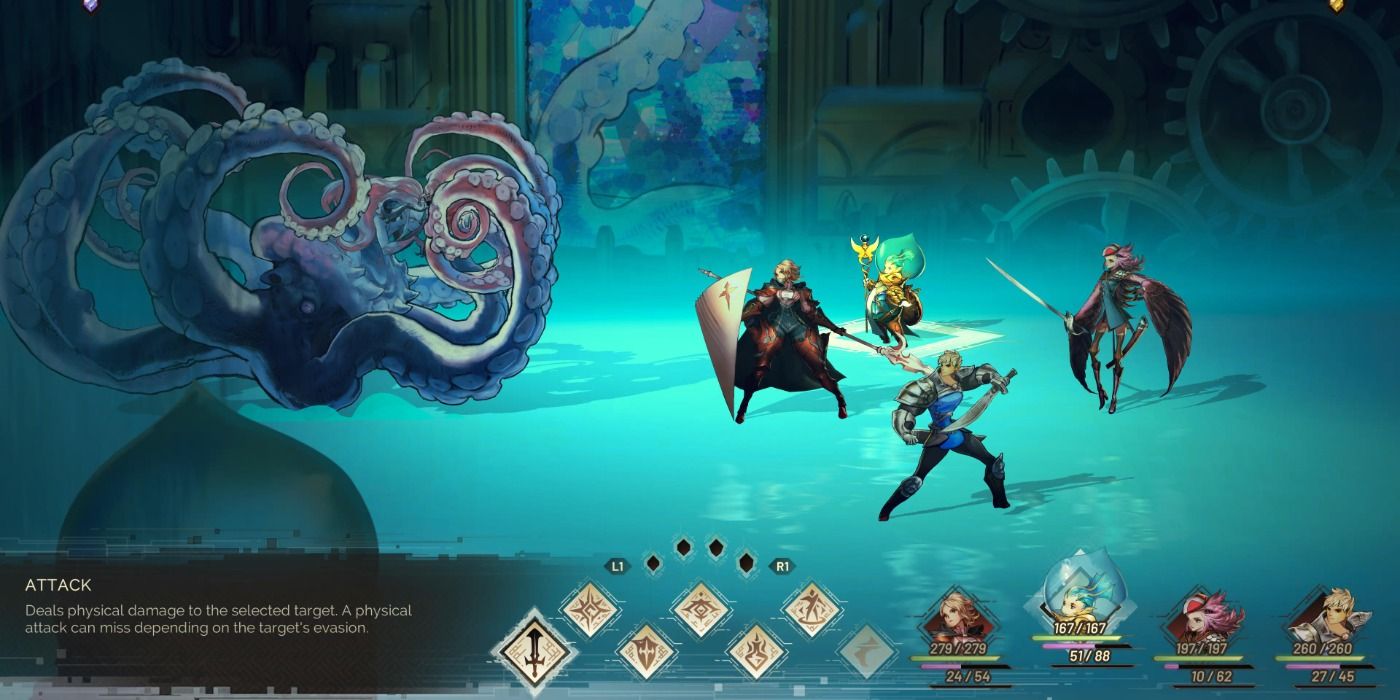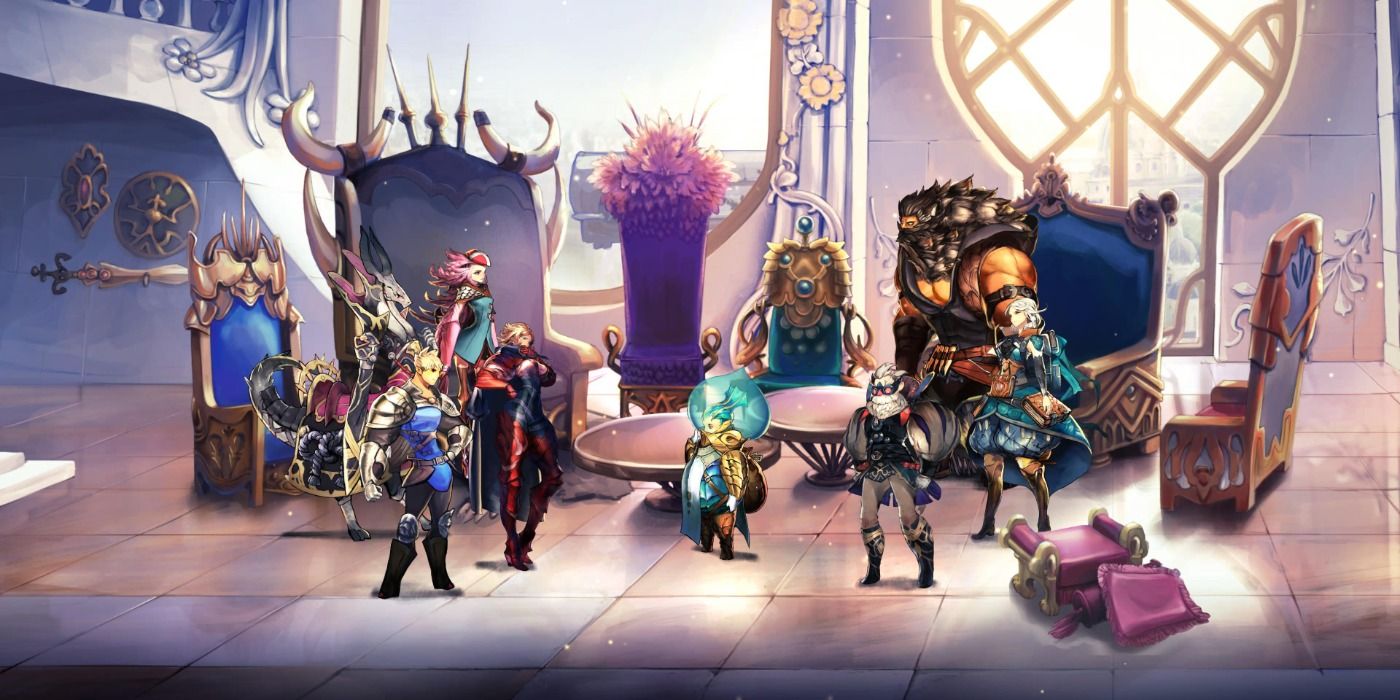Astria Ascending is a turn-based JRPG-style game developed by Artisan Studio and published by Dear Villagers and Maple Whispering Limited. The game tries to be a love letter to the classic JRPGs of the past, while seemingly ignoring every modern convenience that fans expect in the genre, leaving an experience that is frustrating and slow.
Astria Ascending throws the player headfirst into its strange fantasy world. The world of Astria Ascending is home to different fantasy races, who each send a representative to take up the mantle of a hero and become a Demigod. This is a role with a lot of prestige and personal power, but it comes at a cost, as the Demigods only have three years to live. The residents of the world eat a special fruit, called a Harmelon, which makes everyone live in peace. Problems start to arise when people refuse to eat the fruit and rebel against the order of things, leading to the Demigods being sent into action. They soon realize that the problems are close to home, as many of their former family members have turned against them, and are gathering groups of monsters (referred to as Noises) to wage war.
Astria Ascending has an interesting concept, but the game does a poor job of introducing the player to its fantasy notions. It feels like watching an anime by starting on the final season, as the characters all know each other at the start of the game, and are nearing the end of their three-year tenure. Astria Ascending would have benefitted from starting at an earlier point in the story, in order to gradually introduce its characters and concepts.
The player has access to eight characters in Astria Ascending, but can only use four in battle at once. The player can switch out characters on one of their turns, but they won't be able to act for a turn. Astria Ascending has a feature called the Focus system, which is like a mixture of the Pass Turn system from Shin Megami Tensei and the Brave and Default system from Bravely Default. If the player hits an enemy weakness with a spell, then they will earn a Focus point. These Focus points can be spent on powering up abilities, increasing their output by up to double the amount, be it damage or healing. Astria Ascending also has skill trees for leveling up new abilities, with the player able to access new skill trees by unlocking new jobs.
Astria Ascending's biggest problem is the way the game moves at a snail's pace, with no option to speed things up. The lack of enemy variety and their limited movepool also make the battles feel repetitive. The speed issues with Astria Ascending are exacerbated when facing massive groups of 8-10 enemies, who take their sweet time with their attacks. If that enemy manages a surprise attack, then the player has to sit through double the number of attacks.
Astria Ascending enemies frequently spam status effect attacks, and the game's combat system makes sure to spend time with each character during each turn that they cannot act, rather than doing it all at once. The slow pace also comes into play with the boss battles, with many of them having unnecessary form upgrades that refill their health bar, without significantly increasing the difficulty. The game would benefit from speed up or skip animation options, as well as a turn counter, in the same vein as Final Fantasy X. The slowness also comes into play outside of battle, as there isn't even an auto equip/optimal equipment button, despite the fact that there are eight characters to buy gear for.
By contrast, the best aspect of Astria Ascending is its visuals. The overworld looks gorgeous, with imaginative character designs and beautiful cities. The dungeons do suffer somewhat in comparison, as they are mostly bland corridors and outdoor areas, but that's to be expected of wilderness and ruined buildings. The soundtrack is also stunning, with some great battle themes. It's just a shame that the aesthetics aren't connected to a more cohesive and well-paced adventure.
Astria Ascending has the makings of a great game, but it falls short on several fronts. A version of the game that started out at an earlier point in the story, in order to gradually introduce each character and their abilities, would have helped smooth the transition into the main quest. A number of QoL improvements, especially related to the speed of the battles, would also drastically improve the gameplay. As it stands, Astria Ascending feels like a throwback to a different era, while needlessly ignoring the modern conveniences that have improved the genre in the time that has passed since then.
Astria Ascending is coming to Nintendo Switch, PC, PS4, PS5, Xbox One, and Xbox Series X/S on September 30, 2021. Screen Rant was provided with a digital code for the PS5 version of the game for the purposes of this review.



